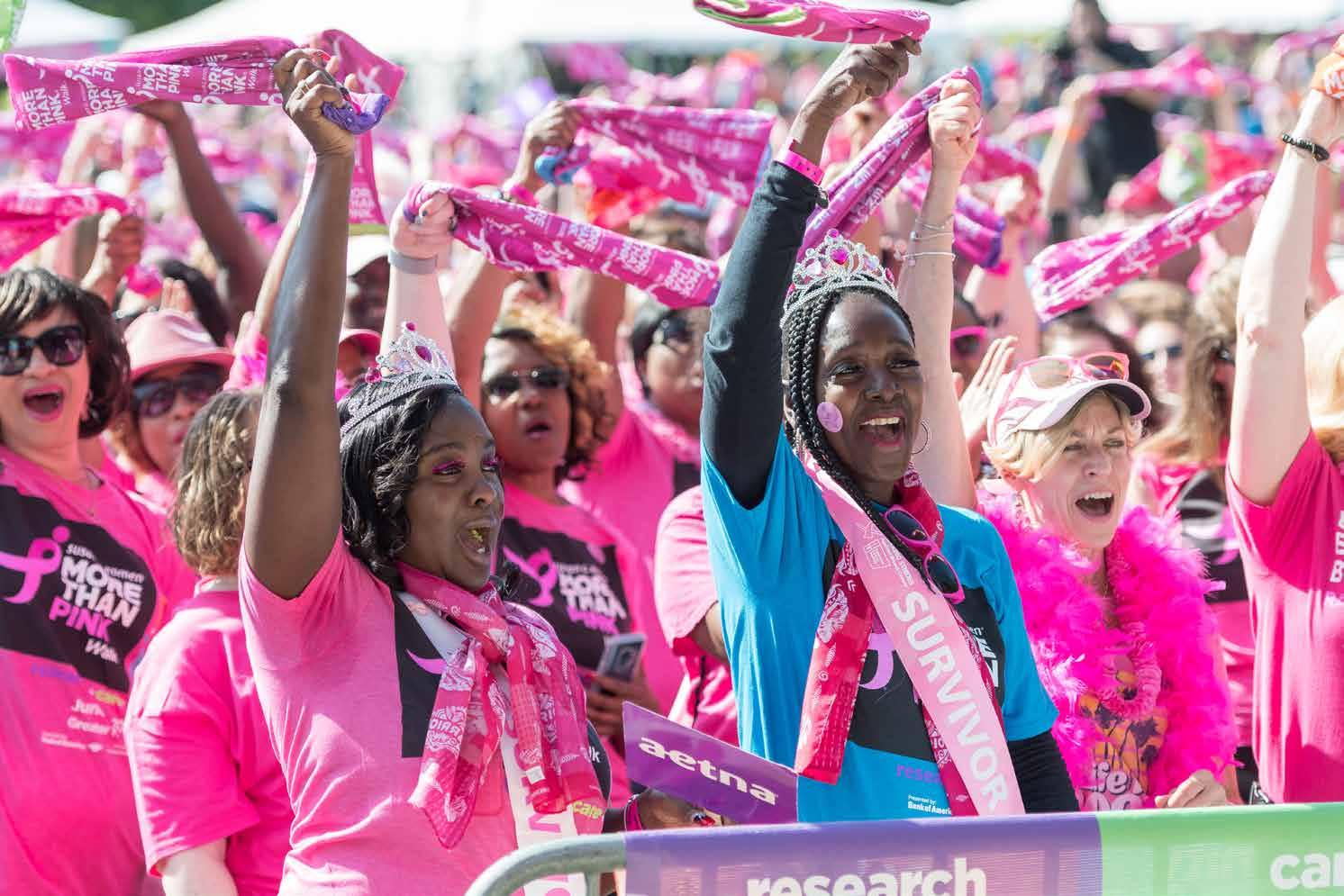
5 minute read
Oncology Research
from Austin Medical Times
Oncology Research A Caregivers Guide to Covid-19 and Cancer
By Jason Melear, M.D., Texas Oncology Austin Midtown
Advertisement
Caregivers play a critical role in the health and safety of cancer patients – a role that took on new meaning when the COVID-19 pandemic changed the world overnight. Whether you’re a full-time caregiver to a family member, a neighbor picking up groceries, or a trusted friend – your support and commitment to safety matter. Caregivers and other close contacts can take extra steps to protect cancer patients from COVID-19. Understand the risk. People with cancer, including patients currently receiving treatment, are vulnerable to illness and have a higher risk of infection and complications from COVID-19. According to the American Cancer Society (ACS), COVID-19 can impact cancer patients more seriously than those who don’t have cancer for reasons including the cancer itself, a weakened immune system, and certain types of cancer treatment, among others. If you aren’t sure whether your loved one is at a higher risk, make sure the patient gets clarification from their healthcare team, with information specific to the disease and condition. Take action and stay vigilant. A cancer patient’s safety precautions alone aren’t enough if their caregivers and close contacts aren’t taking precautions too. The Centers for Disease Control and Prevention (CDC) provides a comprehensive list of safety guidelines at www.cdc.gov/coronavirus. Start with the basics: • Wear a face covering – regardless of setting • Practice social distancing. • Avoid crowds and contact with those who are sick. • Wash your hands often. • Disinfect surfaces. Another important measure: stay home. With cases of COVID-19 on the rise in Texas and across the U.S., now is not the time to let the guard down on safety. Consider the potential exposure risk even with family and close friends and make decisions with the highest safety measures in mind. Because COVID-19 can be spread by people who are asymptomatic, a caregiver’s actions can unknowingly expose cancer patients and others at higher risk of contracting the virus. Know the symptoms. Some people experience minor symptoms with COVID-19, and symptoms may look different for cancer patients or those with a weakened immune system. The ACS advises caregivers to call their physician if they or the person they’re caring for has symptoms. The most common are cough, fever, shortness of breath, loss of smell or taste, nausea, and diarrhea. Call the patient’s physician or dial 911 for more serious symptoms like difficulty breathing, pain or pressure in the chest, confusion or being hard to wake, or bluish-colored face or lips. Mind your loved one’s mental health – and your own. Navigating cancer during a pandemic can feel isolating to patients who are secluded from friends, family, and their communities. Isolation can lead to depression and feelings of hopelessness. Being healthy requires a focus on mental and emotional wellness along with physical wellness. Reach out
to their physician if you feel your loved one is experiencing feelings of isolation or depression. The stress, anxiety, and fear caused by the COVID-19 pandemic also adds a layer to the deep physical and emotional commitment made by caregivers. Self-care is critical for caregivers. Find ways to relieve stress, communicate openly, and connect in ways that adhere to safety guidelines. The COVID-19 pandemic challenges caregivers and close contacts of cancer patients to reevaluate safety measures at home and in public. At Texas Oncology, we believe everyone plays a role in protecting vulnerable cancer patients from additional illness. Together, we can make a difference.
Subscribe to Our Digital Issue

Now you can get the Austin Medical Times delivered straight to your inbox. Never miss an Issue of Austin’s Leading Local Healthcare News Online.
austinmedtimes.com


MARINE MILITARY ACADEMY
REPARE FOR COLLEGE CONQUER LIFE!

At Marine Military Academy, challenge leads to growth, and growth leads to success. By providing a college-preparatory curriculum in a structured, disciplined and focused setting, our cadets rise to new heights as scholars and leaders. No other school can unlock a boy’s potential like MMA.
NOW ENROLLING FOR 2019-2020 MMA-TX.ORG »» 956.423.6006 ADMISSIONS@MMA-TX.ORG
MMA »» A College-Prep Boarding School for Boys in Grades 7-12 MMA »» 320 Iwo Jima Blvd. »» Harlingen, TX 78550
Alternative Stroke Treatment Proposed to Protect Emergency Health Care Workers Against COVID-19
Researchers are proposing the use of an alternative treatment for acute ischemic stroke to reduce health care workers’ exposure to COVID-19 in hospital emergency departments, according to an editorial published in the latest edition of JAMA Neurology.
Specifically, the researchers are suggesting replacing the commonly used stroke drug alteplase with a similar but less frequently used treatment called tenecteplase. Alteplase and tenecteplase both fall in the category of clot-busting drugs known as tissue plasminogen activators, or tPA.
“Treating patients suffering from acute stroke in the emergency department during the pandemic is an especially vulnerable situation for clinicians, because stroke victims can’t always provide their own history to screen for COVID-19 and the urgency of assessing and treating stroke requires action before the results of COVID testing are known,” said co-author Steven Warach, M.D., professor of neurology at Dell Medical School at The University of Texas at Austin.
Before the COVID-19 pandemic, some stroke centers across the country had switched from alteplase to tenecteplase for treatment of stroke, because it is quicker and simpler to use, costs less, and randomized clinical trials compared to alteplase showed it is at least as effective in limiting disability caused by stroke and may even be better in opening the blocked arteries causing the stroke, according to the editorial. Tenecteplase is given

as a single, five-second injection that requires about two minutes to mix, prepare and administer. In contrast, the conventional alteplase treatment takes about an hour to deliver.
Warach co-wrote the editorial with Jeffrey Saver, M.D., a neurology professor at the David Geffen School of Medicine at UCLA. The pair contend that the simpler tenecteplase treatment may have additional advantages during the pandemic, because it cuts the amount of time health care workers spend

near potentially infected patients. Additionally, unlike alteplase, it does not require an intravenous infusion pump that follows the patient through other hospital departments and wards, possibly providing more surfaces for the virus and staff to touch.
Because alteplase is effective at reducing blood clots, it is being used to treat severe lung complications in COVID-19 patients. Some regions have experienced shortages of alteplase because of this increased demand, according to Warach.
“Tenecteplase treatment of acute stroke may be an efficient adaption to some of the challenges of the COVID-19 pandemic – reducing the exposure to health care workers to the virus and addressing shortages of alteplase supplies that might arise, especially in regions that are experiencing prolonged surges in COVID-19 hospital admissions,” said Warach.



